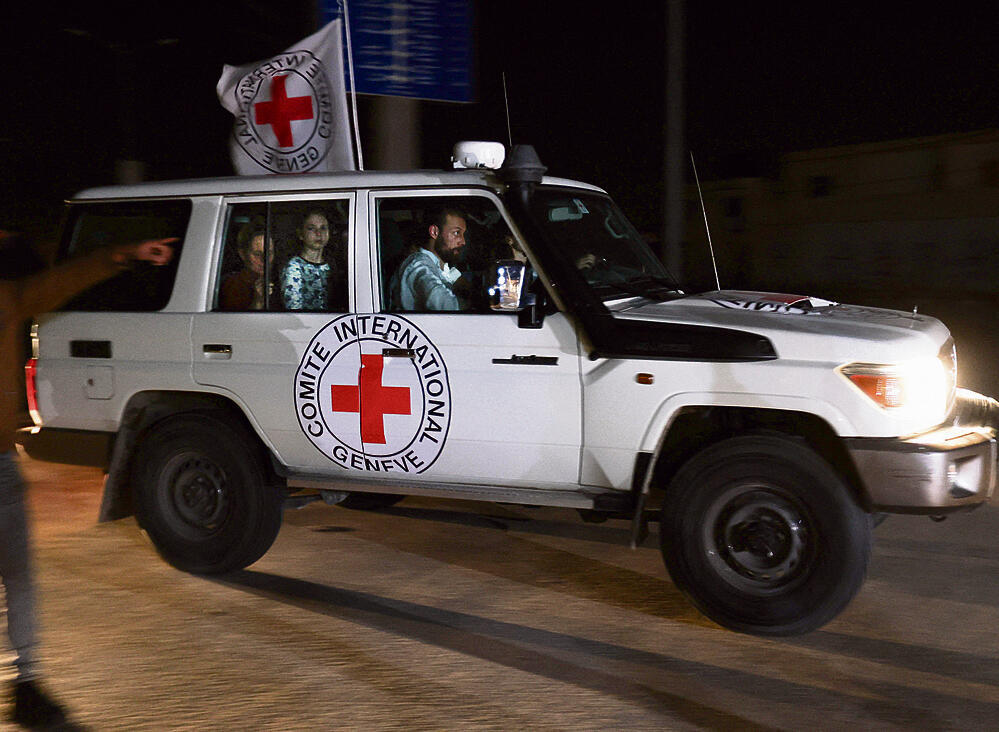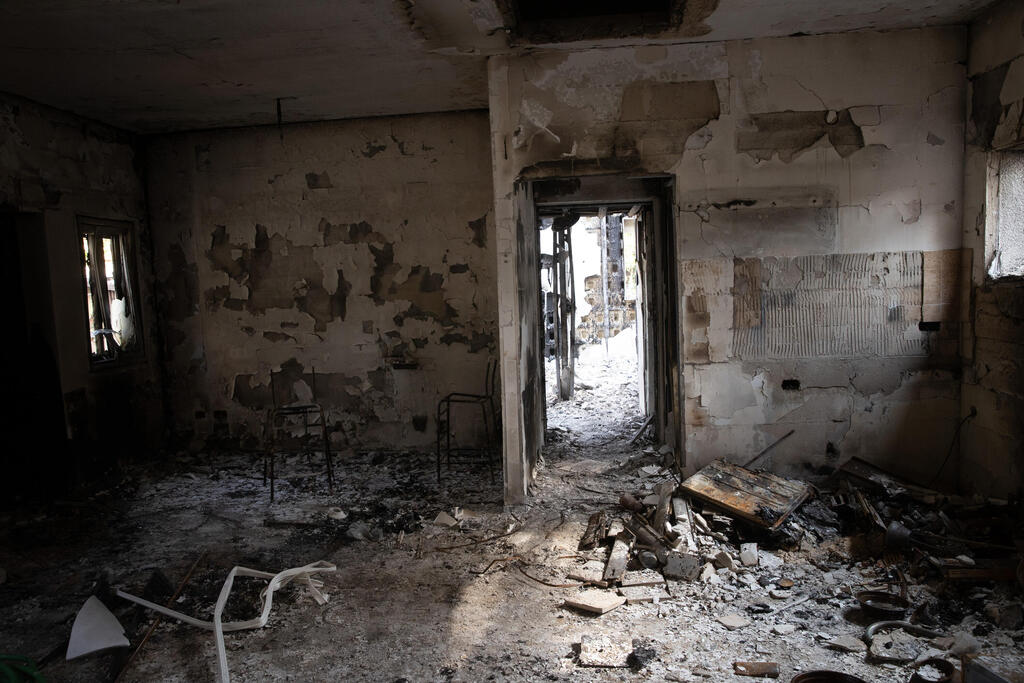Getting your Trinity Audio player ready...
When one of the returned hostages was released, one of the doctors who treated her recounts, "She was sad and began to comprehend her new reality. She realized her home no longer existed, having been completely burned. She told me, 'Talking about it doesn’t do me any good. Day by day, I only hear bad news.' She also expressed sorrow over the loss of her kitchen, her cherished old recipe book, and her inability to cook for her children and grandchildren, something she loved to do. She repeatedly asked if there would ever be a day when she could wake up without thinking about what they had endured there."
Read more:
What did she say about their experiences in captivity?
"She mentioned that they weren't physically abused, but they lacked medication and proper nutrition. Their diet mainly consisted of rice, canned hummus and beans, sometimes with salty cheese and pita, but nothing more. No fruits, vegetables, or eggs. As an elderly woman, she lost 12 kilograms. From our conversation, I understood that they all tried to eat as little as possible because the beans and hummus caused constipation. They weren't used to such a diet on a daily basis. They were afraid to get sick and couldn't care for themselves; they didn't want painkillers for stomach aches, so they made sure to drink plenty of water. They had access to water."
2 View gallery


Hostages freed from Hamas captivity in Red Cross vehicle
(Photo: IBRAHEEM ABU MUSTAFA)
Who were 'they'? Were they kept together?
"They were a group, as far as I understand," the doctor says. "They were beaten with sticks when they were captured. It's not easy to spend 50 days five floors underground in a room accessed through a long corridor."
Did she tell you about the conditions they were held in?
"She said they didn't bathe for 50 days and took care to clean the latrine. That was all they could do, as they didn't have enough water. It's sad to hear. Initially, it was hard for them to sleep at night due to stress and fear. Then they got or were given sleeping pills by their captors, which they divided into four parts to help as many people as possible sleep," sighed the experienced doctor, who has seen a lot in her life but wasn’t prepared for treating elderly women returning from captivity in their eighties and nineties.
Did they sleep on mattresses or the floor?
"Sleeping conditions were poor. They slept in beds pushed together, and it was crowded. They washed their clothes in the room, and drying them was difficult. They weren't given light, only for two hours a day. When they asked for a pencil or pen to write and pass the time, their captors refused, fearing they might pass information through writing. So, they had no television or reading material, and spent time talking to each other."
What gave them the strength to survive such terrible conditions?
"Their strength came from being together and caring for each other, and their personalities. One of them told me that on the first day, they sat and shared their terrible experiences, each contributing what they could. For example, there was a man who knew a lot about the history of Israel, so they spent two to three hours a day listening to his interesting lectures on history. Some cooked and took care of food, like one woman who asked the captors in Arabic to bring them oil to deal with constipation. Their mutual care, being there as a group, as a family, kept them together, along with the hope of seeing their families. They felt the captors wanted to keep them in good condition. The hardest days were the day they arrived and the day they left to return home."
'One of them told me that on the first day, they sat and shared their terrible experiences, each contributing what they could. For example, there was a man who knew a lot about the history of Israel, so they spent two to three hours a day listening to his interesting lectures on history'
Did they know they would be rescued?
"Initially, they knew. One of the captives said that where they were held, five floors down, they didn't see television, but people in another group did and told her, 'You know, we saw you on TV,' and she asked where and they told her, 'On the news in the country, there are demonstrations by the families of the captives and your granddaughter was holding your picture.' So yes, they knew we were fighting for them. She said, 'I never thought I'd be famous,' and yesterday, when we wanted to release her and journalists and photographers arrived, she said she didn't want to be interviewed or photographed. But they waited to be rescued, knowing we were fighting for them and wanting to get them out. They were aware of this."
Have you noticed a change in their mood since they arrived until today?
"One of them, on the first day, was a woman full of determination, and it was touching to see her with her children. She insisted on walking to meet them, even if she needed support, instead of using a wheelchair. It was a very emotional reunion. But later, as the excitement subsided, which is typical for the second or third day, they began to grasp the reality and face all the surrounding problems - whether it's having no home, a missing person, or someone who was killed. Each had her own worries, but they are holding up. They are strong.
In the afternoon, one of the captives was released from the hospital, "What a woman, what strength. How she held herself and her family around her. And we, the team around them. We prepared for a long time for their reception. There was also a lot of logistics involved: police, military, Shin Bet working together, and that's what led to success. We thought of every little thing for them, from a nutrition unit knowing how much each one lost in weight and what to feed them to all the necessary medical tests."
Which of the returnees did you treat or are treating at Wolfson?
"One of the captives remained for supervision with her children and family around her. I admire her. At her age. Such a woman. In general, I admire all of them, all the strong women who returned from captivity. They have a lot of desire to rehabilitate, to return to normal life, even though it will take them time to recover. But they have a good spirit, and we hope that their mental rehabilitation won’t be long. They went through a not-so-simple and not-easy experience, and behind each one is a personal story of a loved one killed or someone dear in captivity, and it's not easy."
What did the women who returned say about the fact that the men were left behind?
"They understand the situation, that children and older women are evacuated first, and they really hope that the men will also return."
Regarding another captive was by her, the doctor shared: "She has stabilized, and we hope that in the coming days she will move to rehabilitation."
Will they all be alright?
"They will be alright. Overall, they arrived in a fair condition, all older women, and our expectations were much more worrisome. We are in contact with them and their families and will continue to take care of them. But what will help them the most is the warmth, love, and security from the family and environment. This will give them the strength to start to uplift themselves, as their rehabilitation won’t take just a day or two."
Where do they go from here?
"To their families, to their children. But it's not easy, these are women of a kibbutz who want their home that no longer exists, and it will take time. The recovery is mainly mental, and of course, every mental condition also has physical repercussions, but the families have received guidance and know what to do.'"



